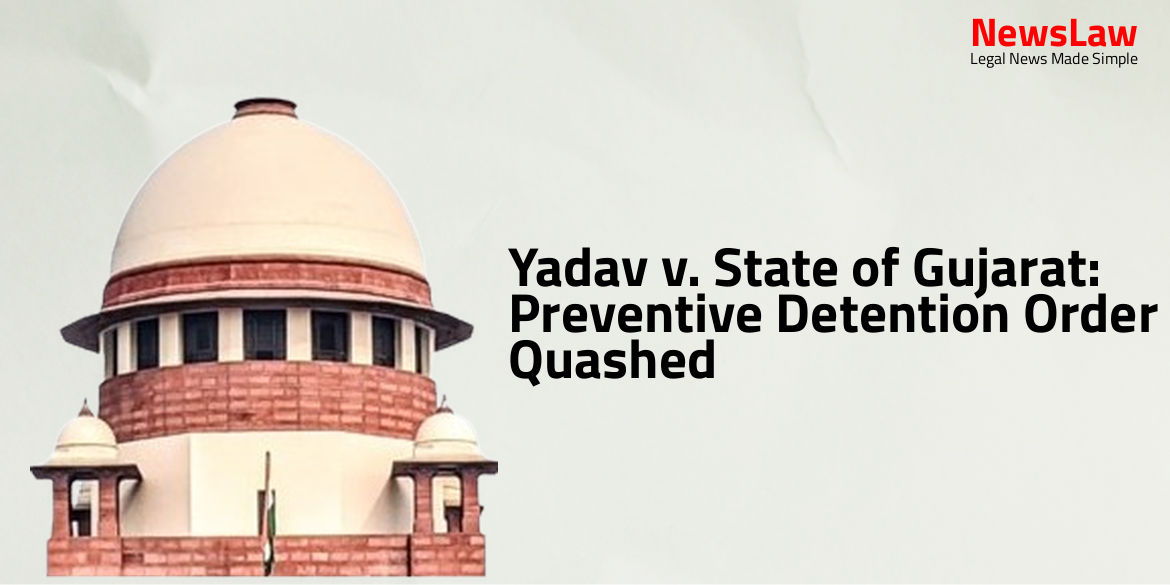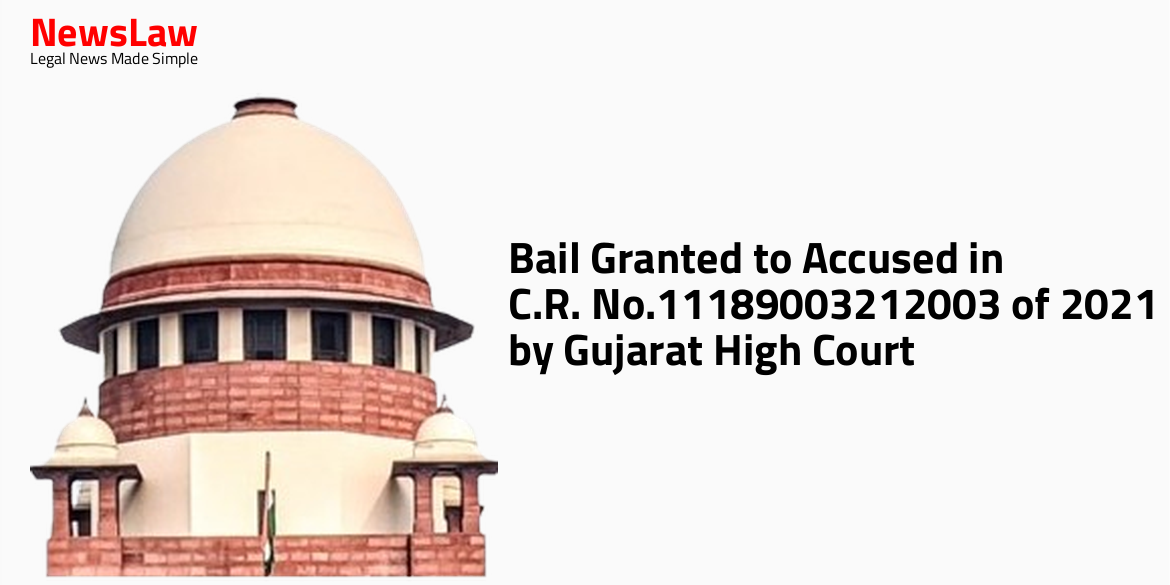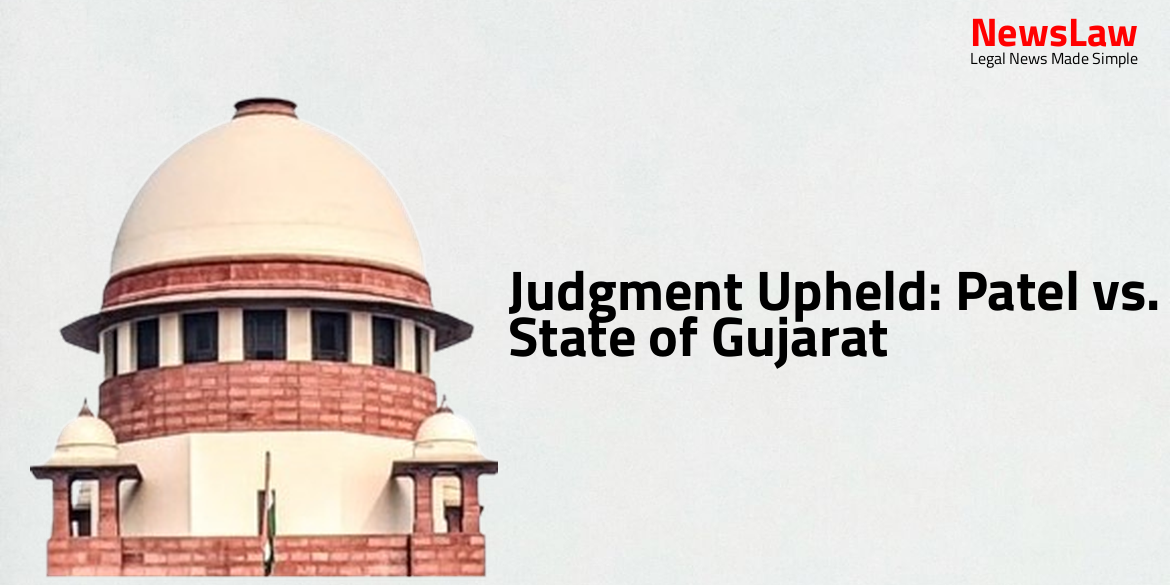Explore the recent judgment by the Gujarat High Court in the case of Yadav v. State of Gujarat where a preventive detention order was quashed. The court examined the activities of the petitioner, Aavinash Ramsevak Yadav, and found that they did not pose a threat to public order. Discover more about this significant legal decision. #LegalJudgement #GujaratHighCourt
Facts
- The petitioner Aavinash Ramsevak Yadav was preventively detained as a bootlegger under the Gujarat Prevention of Anti-social Activities Act, 1985.
- The petitioner has filed a petition challenging the legality and validity of the detention order passed by the Police Commissioner, Surat.
- The petitioner is contesting the grounds on which he was detained under the Act of 1985.
Issue
- The issue at hand revolves around the sustainability of the order of detention passed by the Detaining Authority under the Act of 1985.
- After considering the facts and submissions of both parties, the legality of the detention order comes into question.
- The key determination to be made is whether the order passed by the Detaining Authority complies with the law.
Arguments
- The learned advocate for the detenue argues that the grounds of detention do not relate to public order but pertain to law and order.
- The advocate mentions that the alleged offenses do not impact public order as per the Act of 1985 and only influence law and order.
- In contrast, the State Counsel asserts that the detenue is a habitual offender whose actions have societal implications.
- The Detaining Authority issued the order to prevent the detenue from engaging in activities prejudicial to public order in Surat, considering his past activities.
Analysis
- The detaining authority failed to prove that the alleged anti-social activities of the petitioner affected or were likely to affect the maintenance of public order.
- Although incidents of beating by the petitioner were admitted, they did not disrupt the even tempo of community life or impact public order.
- The petitioner was granted bail for the alleged offences, indicating that they were not severe enough to warrant preventive detention.
- Merely being a bootlegger does not justify preventive detention unless the activities directly affect or are likely to affect public order.
- The grounds of detention based on one prohibition case were found to be insufficient to label the detenue’s activities as prejudicial to public order.
- The contravention of any law affects order, but for it to affect public order, it must impact the community or the public at large.
- Cases affecting public order are dealt with by executive authorities under ordinary criminal law, culprits cannot be detained on grounds of disturbing public order.
- In the case of Piyush Kantilal Mehta Vs. Commissioner of Police, Ahmedabad, 1989 Supp (1) SCC 322, a detention order was made based on the registration of two prohibition offenses.
- A distinction must be drawn between serious forms of disorder directly affecting the community and minor breaches of peace of local significance.
- Mere disturbance of law and order is not sufficient for action under the Preventive Detention Act, while a disturbance affecting public order falls within the Act’s scope.
- The case of Pushkar Mukherjee Vs. State of Bengal, 1969 (1) SCC 10 was referred to, stating that mere disturbances of law and order are not enough for preventive detention action.
- After carefully reviewing the alleged offences and witness testimonies against the petitioner, the Court found that they did not create any sense of public insecurity, panic or terror in the community.
- The Court concluded that the reported activities of the petitioner did not, and were unlikely to, adversely affect public order in the area.
- The subjective satisfaction reached by the detaining authority was found to be not legally sound, valid, or in compliance with the law.
- As a result, the petition was allowed, and the order of detention was not upheld.
Decision
- The detenue is directed to be set at liberty forthwith, if not required in any other case.
- The rule is made absolute accordingly.
- The order dated 30.12.2023 passed by the respondent authority is quashed.
Case Title: AAVINASH S/O RAMSEVAK YADAV Vs. STATE OF GUJARAT
Case Number: R/SCA/389/2024



